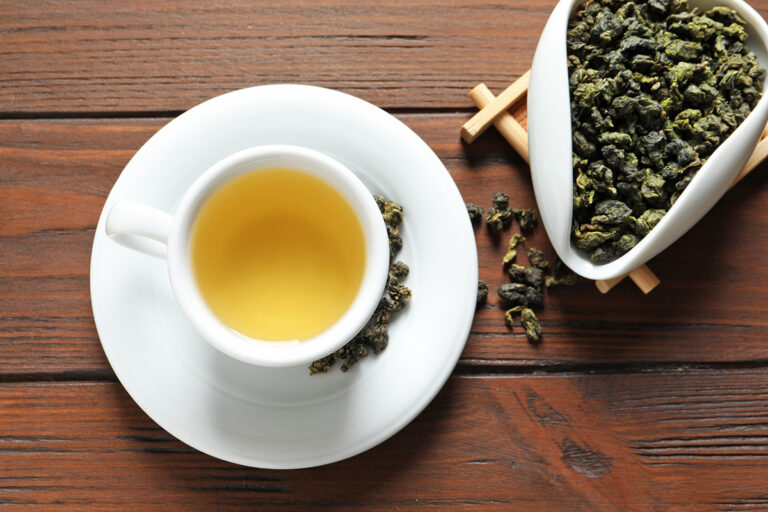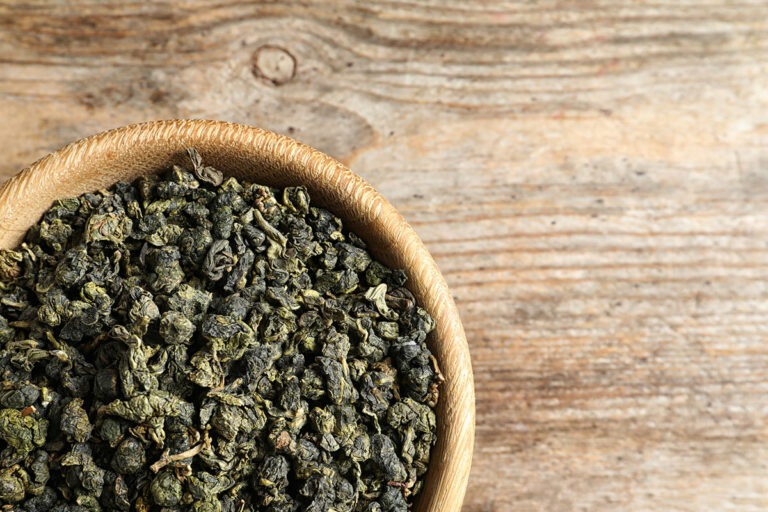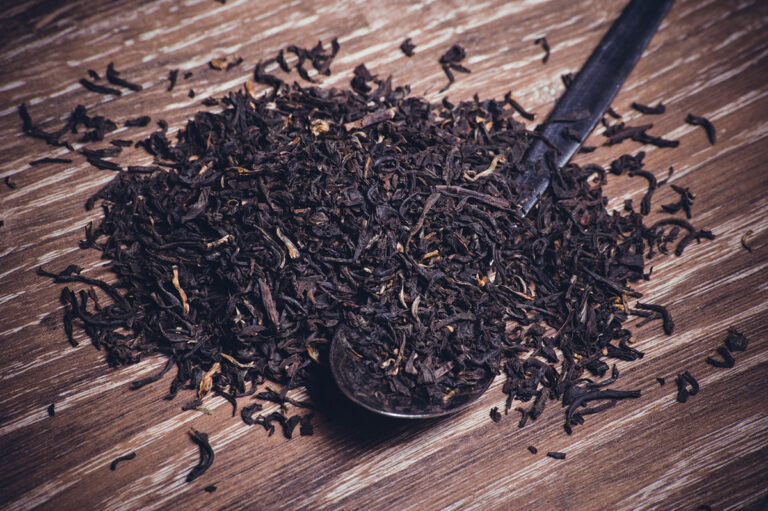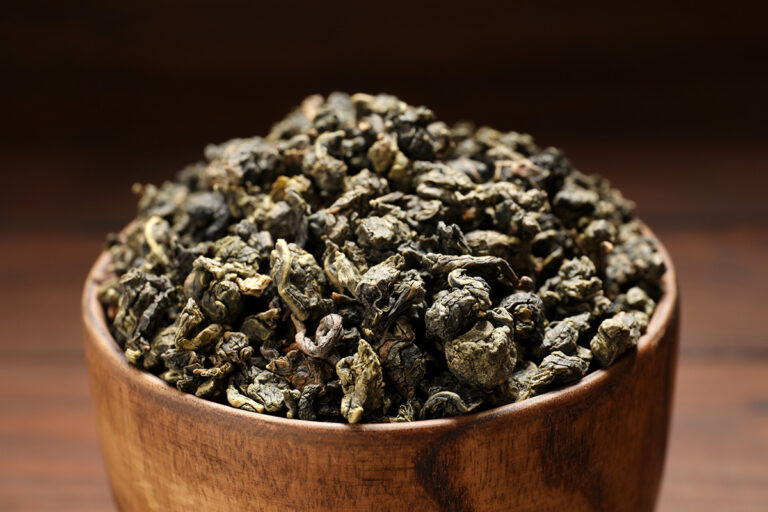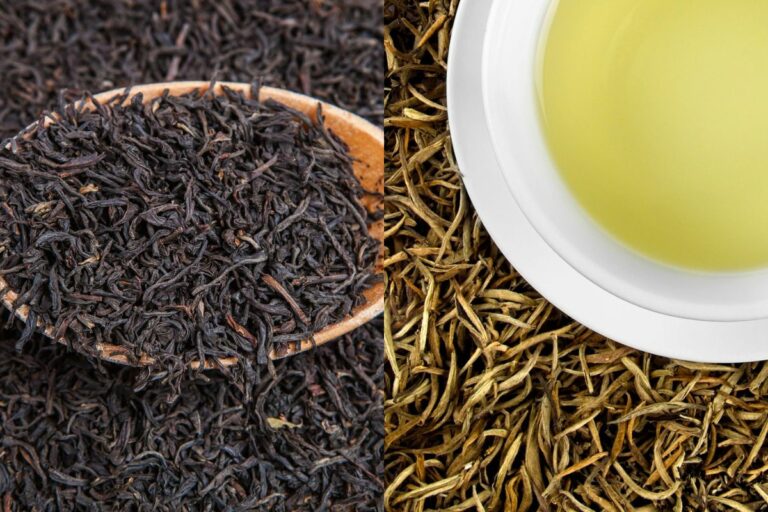Oolong Tea vs. Black Tea: What’s the Difference?
Tea has been a popular beverage worldwide for thousands of years. Among the countless varieties available, oolong tea and black tea are two of the most popular choices.
This article will delve into the world of oolong tea vs. black tea, discussing their differences, similarities, and various health benefits.
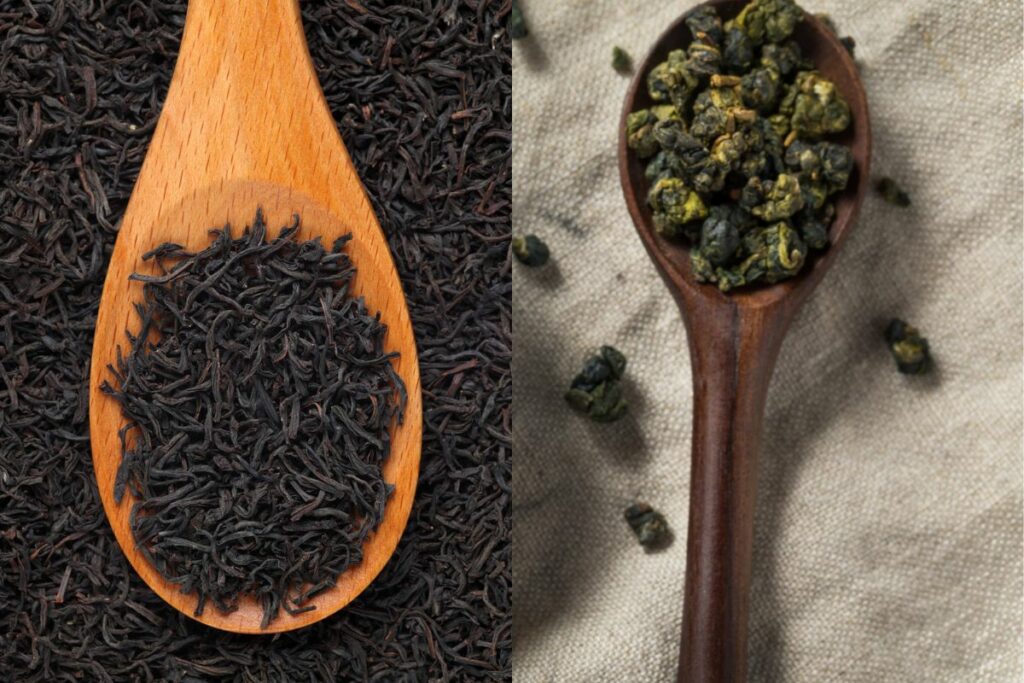
What is Oolong Tea?
Oolong tea is a partially fermented tea that falls between green and black tea in terms of oxidation levels. It originates from China and Taiwan and is known for its diverse range of flavors, from floral and fruity to earthy and roasted. The production process involves carefully controlled oxidation, giving oolong tea its unique characteristics.
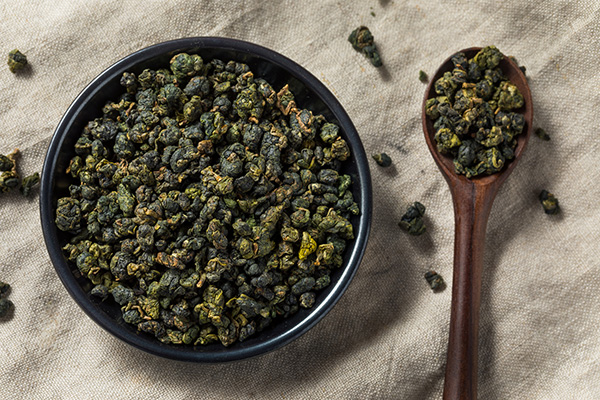
What is Black Tea?
Black tea, on the other hand, is a fully oxidized tea that is popular throughout the world. It is produced by allowing the tea leaves to wither and oxidize, resulting in a deep, dark color and robust flavor. Black tea comes in various forms, such as Assam, Darjeeling, and Ceylon, each with its own distinct taste profile.
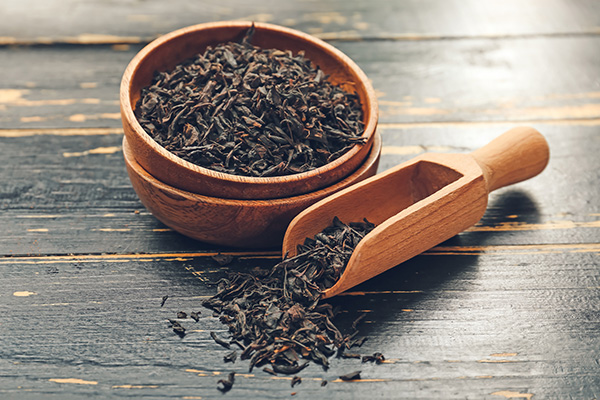
Is Oolong Tea Black Tea?
Although oolong tea and black tea are both derived from the Camellia sinensis plant, they are not the same. The difference lies in the production process, where oolong tea is partially oxidized, and black tea is fully oxidized. This distinction affects the flavor, aroma, caffeine content, and health benefits of the two types of tea.
Difference Between Oolong and Black Tea
Oxidation Levels
The most significant difference between oolong tea and black tea lies in their oxidation levels. Oolong tea is partially oxidized, ranging from 8% to 85%, while black tea undergoes full oxidation. This difference in oxidation levels directly impacts the flavor, aroma, and health benefits of the two teas.
Flavor Profiles
Oolong tea offers a wide array of flavors, from light and floral to rich and roasted, depending on the level of oxidation and processing methods. Conversely, black tea is known for its strong, robust, and malty flavors, often accompanied by astringent notes.
Caffeine Content
Many people wonder about the oolong vs. black tea caffeine content. The caffeine levels in both teas depend on various factors, such as the processing method, the type of tea leaves used, and steeping time. Generally, black tea contains higher levels of caffeine compared to oolong tea. However, the exact amount may vary between specific varieties and brands.
Health Benefits
Both oolong tea and black tea are rich in antioxidants and offer numerous health benefits. Oolong tea contains theaflavins and catechins, while black tea is abundant in theaflavins and thearubigins. These compounds contribute to the teas’ potential health benefits, including improved heart health, weight management, and reduced risk of certain diseases.
Preparation and Steeping
Oolong tea is typically steeped at a slightly lower temperature (180°F-200°F) than black tea (200°F-212°F). This is because oolong tea leaves are more delicate and can be damaged by high temperatures. The steeping time also varies, with oolong tea usually requiring a shorter steeping time of 3-5 minutes compared to black tea, which may take up to 5 minutes.
Ability to Stain Teeth
Black tea is more capable of staining teeth than oolong tea. This is due to its higher tannin and pigment content.
Which Tea Is Right for You?
The choice between oolong tea and black tea ultimately depends on individual preferences. If you enjoy a lighter, more delicate tea with a wide range of flavors, oolong tea may be the perfect choice. On the other hand, if you prefer a strong, bold, and full-bodied tea, black tea may be more suited to your taste. Here are some factors to consider when making your decision:
Taste Preferences
If you prefer a tea with a lighter flavor profile and a diverse range of tastes, oolong tea could be your go-to choice. With flavors that range from floral to earthy, oolong tea offers a versatile drinking experience. In contrast, black tea is known for its robust and intense flavors, making it an ideal option for those who enjoy a stronger brew.
Caffeine Sensitivity
When considering oolong vs. black tea caffeine content, black tea generally contains higher levels of caffeine. If you are sensitive to caffeine or looking to reduce your intake, oolong tea may be a more suitable choice. However, if you require a more energizing cup of tea, black tea could be the better option.
Health Benefits
Both oolong and black tea are packed with antioxidants and offer numerous health benefits. While they share some similarities, such as promoting heart health and weight management, the specific compounds found in each tea may provide unique advantages. For example, oolong tea’s high catechin content may help enhance metabolism, while black tea’s theaflavins and thearubigins can support healthy blood vessels.
Experimentation
If you are unsure which tea to choose, why not try both? Exploring various oolong and black tea types will help you discover your favorite flavors and better understand their differences. Tea sampling can be a delightful experience, allowing you to enjoy each tea’s unique characteristics.
Best Oolong and Black Teas for Your Next Cup
If you’re convinced that oolong tea is your cup of tea, here are the best organic oolong teas we’ve discovered.
If you decide to choose black tea over oolong for your next cup, here are the best-tasting black teas to try.
Conclusion
While oolong and black tea share some similarities, they are fundamentally different in terms of oxidation levels, flavor profiles, caffeine content, and health benefits. The choice between the two teas ultimately depends on personal preferences and specific requirements.
By understanding the difference between oolong and black tea, you can make an informed decision and enjoy the diverse world of tea to the fullest.
FAQ
Is Black Tea Fermented?
In the traditional terminology of tea production, black tea is often referred to as “fermented,” but scientifically, it’s more accurate to say that black tea is oxidized, not fermented. The process involves exposing the tea leaves to air, causing them to darken and develop a stronger flavor.

